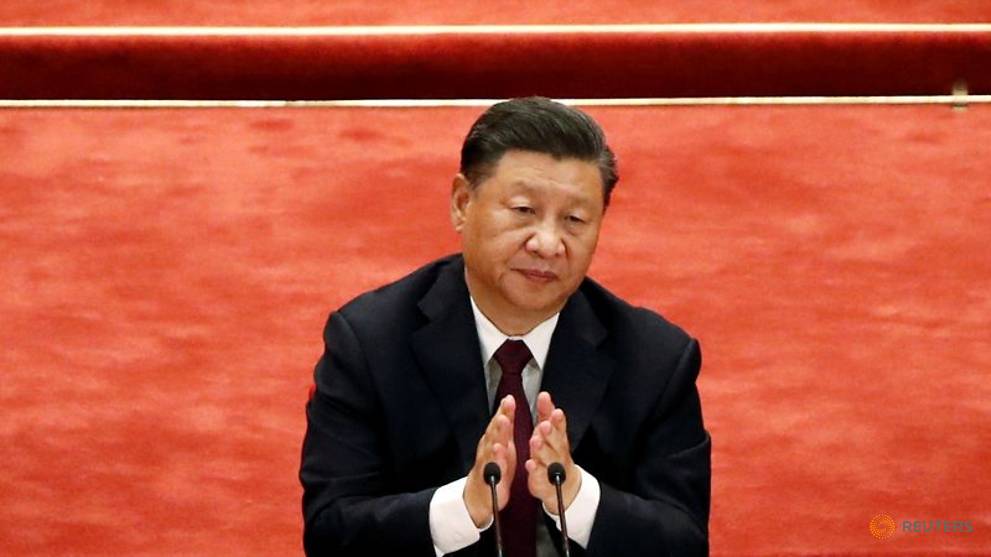KUALA LUMPUR: Amid intense campaigning in the final days of the Sabah state polls on Wednesday (Sep 23), it was not the proceedings in East Malaysia that drew public attention.
In Kuala Lumpur, opposition leader Anwar Ibrahim declared that he had “strong, convincing” support from the majority of Members of Parliament to form a new government.
He was scheduled to meet the king on Tuesday, but the royal audience was postponed as the king was unwell and had to be hospitalised.
In his press conference, Mr Anwar said the government led by Mr Muhyiddin Yassin has effectively fallen, but the latter dismissed his claim as mere allegation. "Until proven otherwise, the Perikatan Nasional government still stands firm and I am the legal prime minister," said Mr Muhyiddin.
Here are some of the possible scenarios of how Mr Anwar's claim could affect Malaysia’s political scene:
WHAT IS THE LIKELIHOOD OF AN ANWAR PARLIAMENTARY MAJORITY?
Dr Oh Ei Sun, Senior Fellow at the Singapore Institute of International Affairs, said this was not the first time Mr Anwar had announced such takeover attempts, noting prior attempts after general elections in 2008 and 2014.
“Anwar is not unknown for all these stunts, so people are still thinking whether this is another ‘cry wolf’ stance. Like Jerry Maguire's ‘show me the money’, people are asking 'show me the majority,'” he said.
READ: Anwar Ibrahim fails to strike out legal challenge to pardon for his 2014 sodomy conviction
Similarly, Professor Dr Ahmad Martadha Mohamed, who heads the Governance and Integrity Cluster at Universti Utara Malaysia’s College of Law, Government and International Studies, pointed out that when Mr Anwar made the announcement, none of his political allies from the Pakatan Harapan (PH) coalition was present.
His press conference was not attended by allies such as Democractic Action Party (DAP), Parti Amanah Negara and Parti Warisan Sabah (Warisan), he said.
"The people beside him were his wife Dr Wan Azizah Wan Ismail, and PKR secretary-general Saifuddin Nasution. It’s more like a political gimmick or stunt, similar to 2014 when he made a similar announcement, but nothing materalised,” Dr Ahmad Martadha said.
HOW WILL ANWAR'S CLAIMS AFFECT SABAH POLLS?
As for Mr Anwar’s announcement affecting the outcome of this Saturday’s state election in Sabah, Dr Oh said if Anwar did possess a majority, it would be better for Warisan president Shafie Apdal to reaffirm his support for Anwar.
“In the ‘kingmaker’ seats, which are mainly Kadazandusun-Murut seats, I think they’re still somewhat undecided between restoring Sabah rights on one hand, and development on the other if you don’t vote in federal parties.”
“So if the federal party is aligned with Shafie and Shafie reaffirms his support for Anwar, then it’s alright, they’ll vote for the Shafie side, either UPKO or Warisan and so on.
"So it depends on Shafie’s decision,” Dr Oh said.
UPKO refers to United Progressive Kinabalu Organisation, a state-based political party in the Warisan Plus coalition.
Generally for Sabah and Sarawak, Prof Ahmad Martadha said, Mr Anwar’s announcement was not likely to have much impact, as both states generally prioritised the well-being of their own population.
READ: Commentary- Malaysian politics is going through a midlife crisis
“In Sabah, a lot of people are voting based on local parties and local issues,” the Kedah-based political analyst said, explaining that issues such as illegal immigration into the state had been a hot topic for the past 20 years in Sabah’s politics, along with other issues such as native land titles and infrastructure development.
“Likewise, Sarawak, and GPS (the ruling political coalition Gabungan Parti Sarawak) will play it safe, as they’re now part of the federal government, and have benefited from being in the Perikatan Nasional coalition,” said Prof Ahmad Martadha, referring to ministerial positions held by GPS MPs, as well as oil royalty payouts.
“Unless it is sure that the federal government is losing support, they’ll still consider supporting whoever can ensure their interests are protected,” he added.
WHAT OPTIONS DOES THE KING HAVE?
Both analysts explained that Malaysian King Al-Sultan Abdullah Ri'ayatuddin Al-Mustafa Billah Shah has two choices to proceed, if Mr Anwar did indeed demonstrate that he has a convincing majority to form the next government.
“If the king were to grant an audience to Anwar and is convinced of Anwar’s majority and so on, he has two choices. One is to appoint Mr Anwar as prime minister, the way he did with Muhyiddin,” Dr Oh said, referring to the appointment of Mr Muhyiddin as the country's top leader following the fall of PH government early this year.
“Or be like the Sabah governor, and at Muhyiddin’s advice, dissolve parliament and allow for fresh elections,” he added.
WHERE DOES MAHATHIR STAND IN ALL THIS?
The absence of former prime minister Mahathir Mohamad and his newly-formed Pejuang party was no surprise, said Prof Ahmad Martadha.
READ: Commentary - Looks like regime change hasn’t altered the Malaysian psyche
“It’s understandable, because both Tun Dr Mahathir and Anwar have both disparaged each other in the past. The quarrel has been there for a long time, so it’s not a secret that Dr Mahathir is not going along with Anwar’s team,” he said.
Dr Oh said if Mr Anwar did indeed have a large majority, the former premier would have to “face up to reality”.
“He’ll have to, in a sense, decide between his disdain for Anwar becoming prime minister, or his hatred for UMNO and PAS as being corrupt and extremist.”
“In any case, he has only five members, it’s not a lot,” Dr Oh pointed out.
https://news.google.com/__i/rss/rd/articles/CBMiamh0dHBzOi8vd3d3LmNoYW5uZWxuZXdzYXNpYS5jb20vbmV3cy9hc2lhL21hbGF5c2lhLXBvbGl0aWNzLWFud2FyLW1ham9yaXR5LXBvdGVudGlhbC1pbXBsaWNhdGlvbnMtMTMxMzc4OTDSAQA?oc=5
2020-09-23 10:44:01Z
52781078653607

